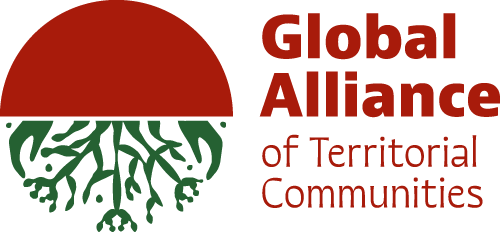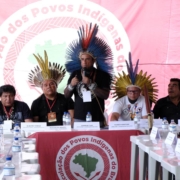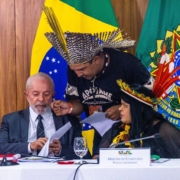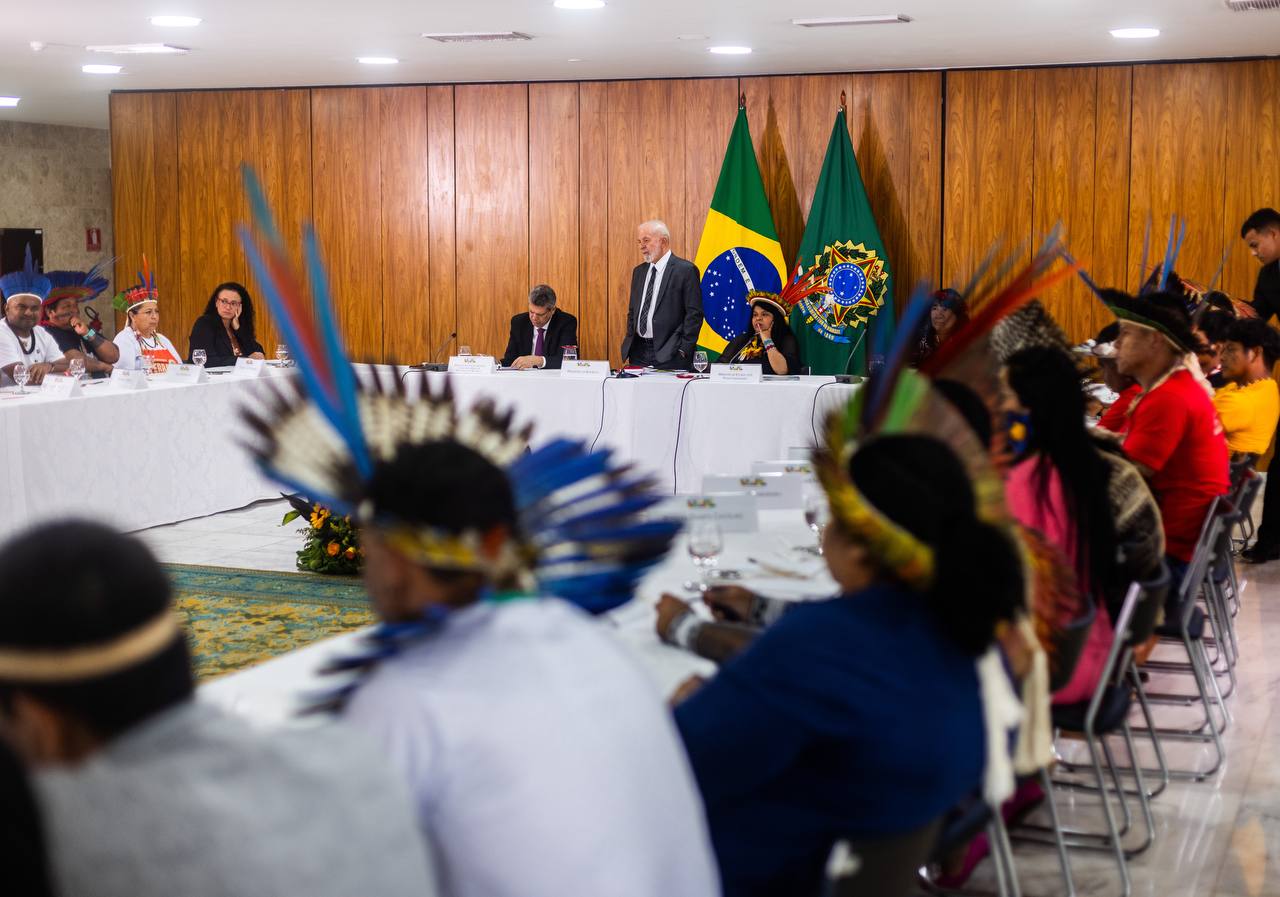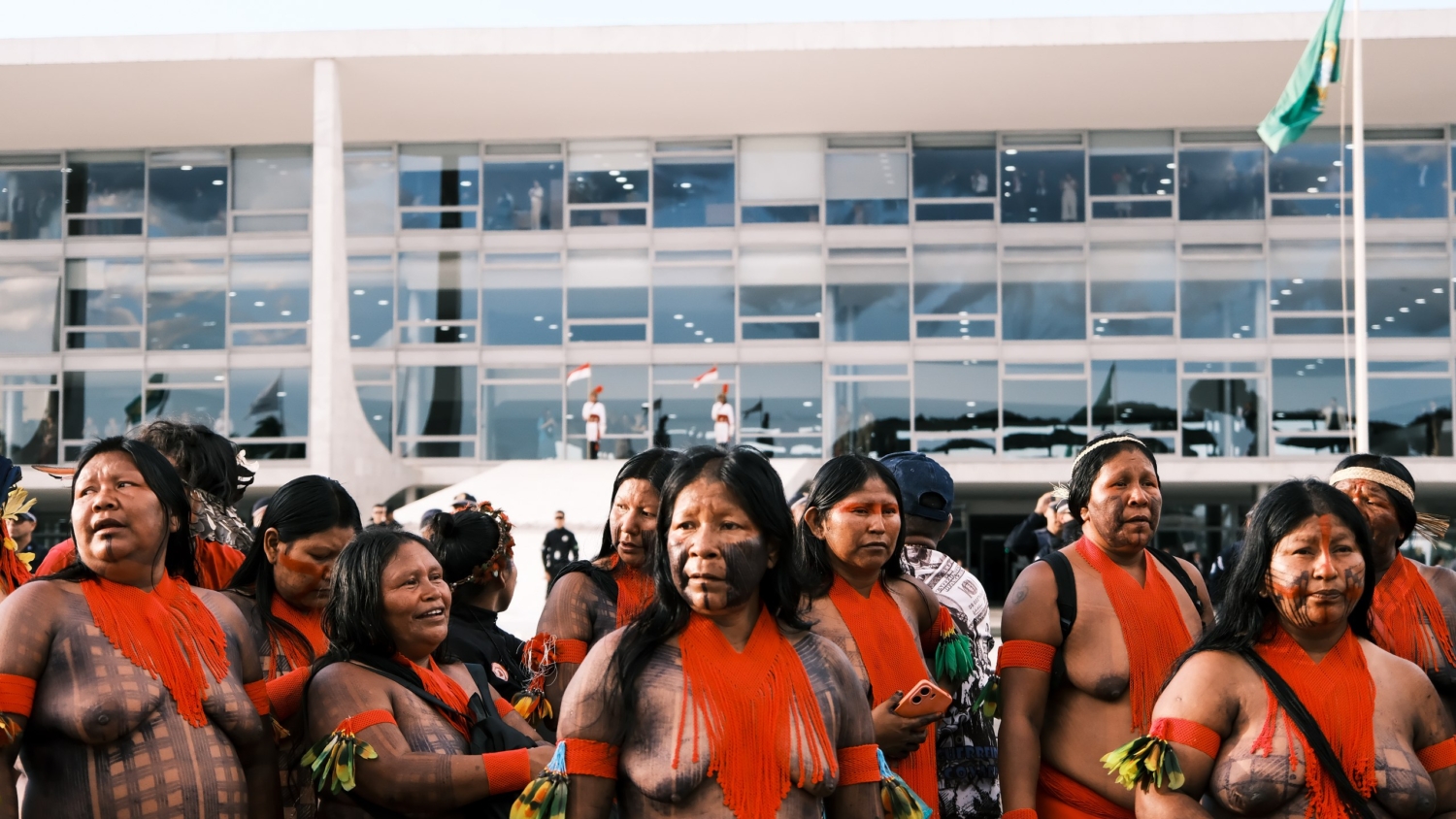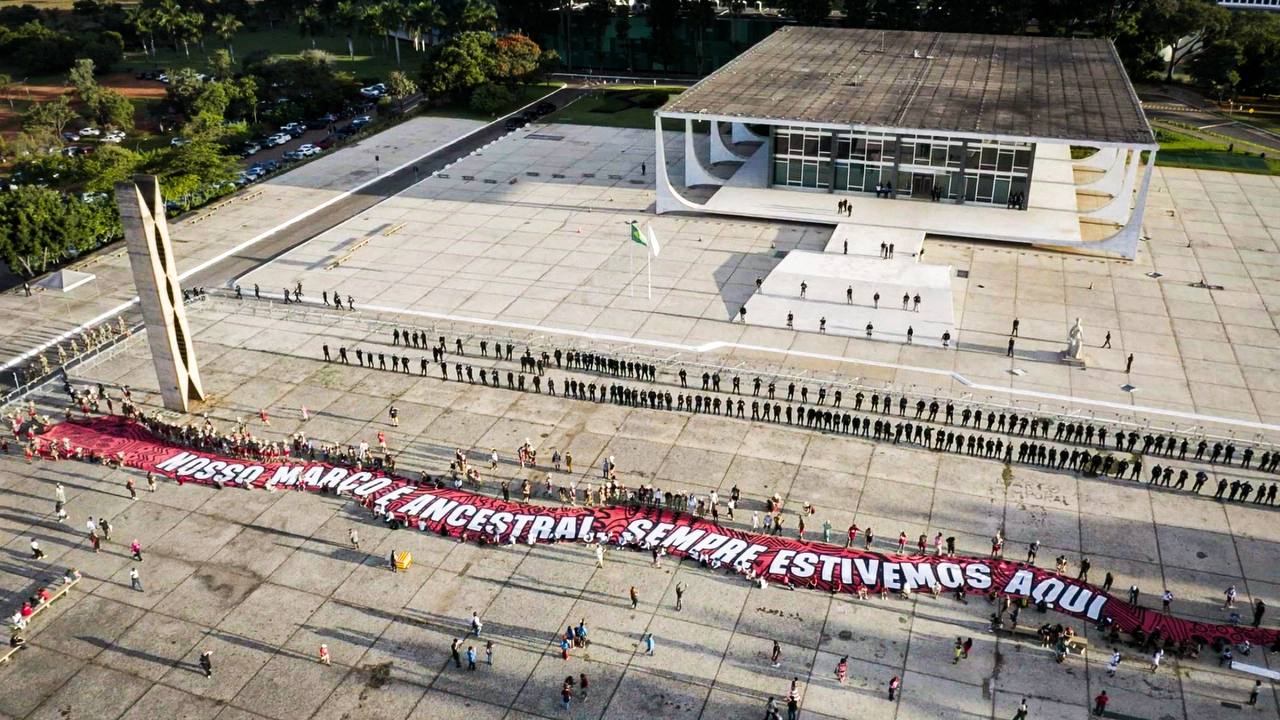From Brasilia, a Call for Governments to Work for Indigenous Peoples of the World Towards COP30
Indigenous Peoples of Brazil met with over a dozen of Brasilia’s ambassadors to call on governments to support their agenda towards COP30 with swift action to stop deforestation and violence in indigenous lands.
April, 2024 — Brazil’s indigenous movement is seeking multiple pathways to ensure the upcoming COP30 can be marked by action in the territories. In a meeting with over a dozen embassies, they asked governments to commit to halting their countries’ extractive activities in indigenous lands. As the country gears up to host the upcoming COP30, there is a need to match discourse with on the ground action, according to the Articulation of Indigenous Peoples of Brazil (APIB).
During the meeting, leaders from all biomes of Brazil stated the links between land invasion and foreign interest, particularly highlighting the violence communities experience due to displacement and confrontations with invaders and corporations.
“Don’t receive soy exports that are linked to indigenous blood. If a product is coming from our lands, it is the result of a direct attack on us and is tainted by violence”, said Norivaldo Mendes, from the Guarani Kaiowa people and Executive Coordinator to Aty Guasu and APIB. “Corporations won’t tell you where the soy comes from because they don’t want to lose all the resources our land provides them”, he finished.
The delegation met with representatives from Australia, Austria, Belgium, Canada, Denmark, the United States, France, Italy, Norway, New Zealand, Sweden, Switzerland, the United Kingdom, the European Union, and the Brazilian Ministries of Foreign Affairs and of Indigenous Peoples. This marks the first time the APIB hosts a single meeting with a diplomatic body of this calibre.

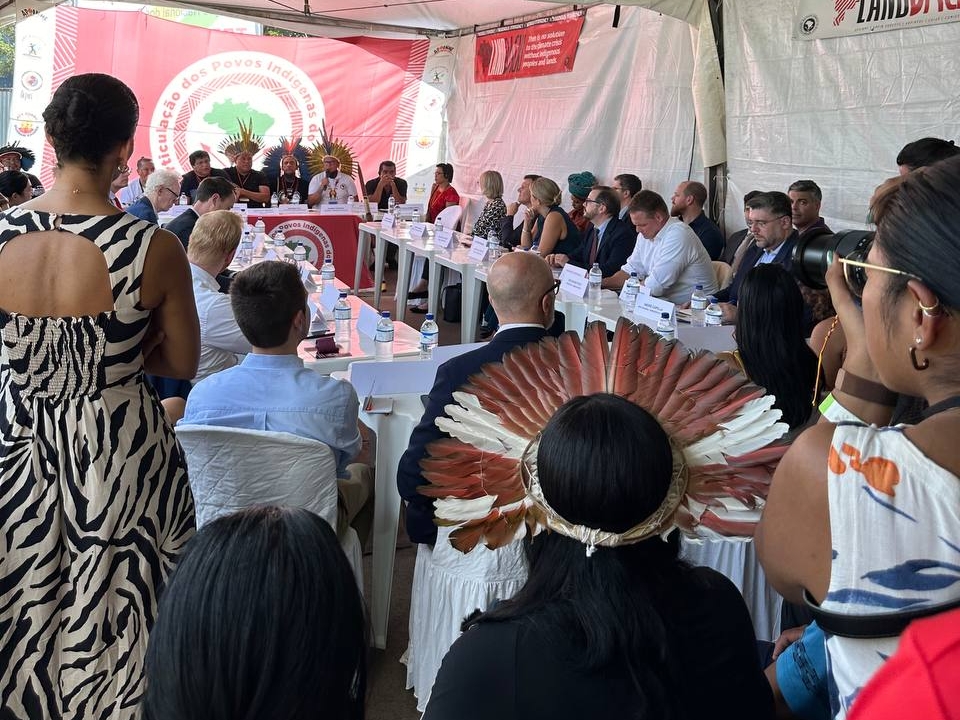
Among the petitions from the indigenous leadership, they called on these governments to support effective Indigenous participation in COP30 and to include concrete goals for demarcating Indigenous Lands in the upcoming update of the Brazilian Nationally Determined Contributions (NDCs); to implement direct financing to Indigenous organisations by adapting their operations, monitoring and evaluation instruments; and to prioritise a new vision on infrastructure that respects Free, Prior, Informed Consent and that does not impact Indigenous Lands – explicit demanding no mineral or oil exploitation in their territories.
The ambassadors heard a call for them to hold companies accountable for damage incurred against nature and the inhabitants of the regions in which they operate; and to commit to not financing or supporting projects that are characterised as greenwashing.
“We want to push for traceability of the commodities sold to the European Union and big economies of the Global North, because then you will be able to see why we are constantly calling out violent land grabbing attacks” said Dinamam Tuxa, Executive Coordinator to APIB.
The leadership also pushed a debate on mining expansion as a response to the climate crisis and a proposal for “sustainable” development. “There is no point in coming to Brazil to look for what has already been used up in your countries”, said Executive Coordinator Kreta Kaingang, speaking on fossil fuel and mining projects. “We are not against development, but we cannot accept development that is based on the death of our people”, he added.




The Global Alliance of Territorial Communities (GATC) leadership joined Brazilian Indigenous authorities for the meeting, as part of their participation in the Free Land Camp (Acampamento Terra Livre – ATL) to advance a joint agenda towards COP30 and call on other stakeholders to join their efforts. Their presence showcased the articulation between Indigenous Peoples and Local Communities worldwide.
“On behalf of the Indigenous Peoples of our alliance, we want governments to join us to make COP30 a historic turning point in how the world confronts the climate crisis. If we don’t come together, we might have to sit down to write the history book on how humanity failed to live with Mother Earth”, said Rukka Sombolinggi, in representation of the Indigenous Peoples of Indonesia and the GATC.
Representatives from the embassies acknowledged the guardianship role Indigenous Peoples carry in their territories and pledged to continue on dialogues with APIB in the route to COP30. Moreover, they spoke of their standing projects and the will to continue investing and connecting with the communities. Many promised to work both with indigenous organisations and the Brazilian government to accelerate the demarcation and effective protection of indigenous lands, guaranteeing the autonomy of the people, and strengthening territorial governance.
